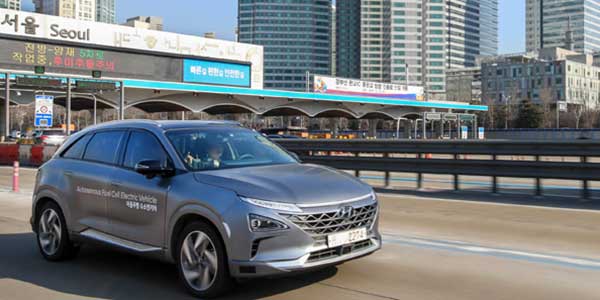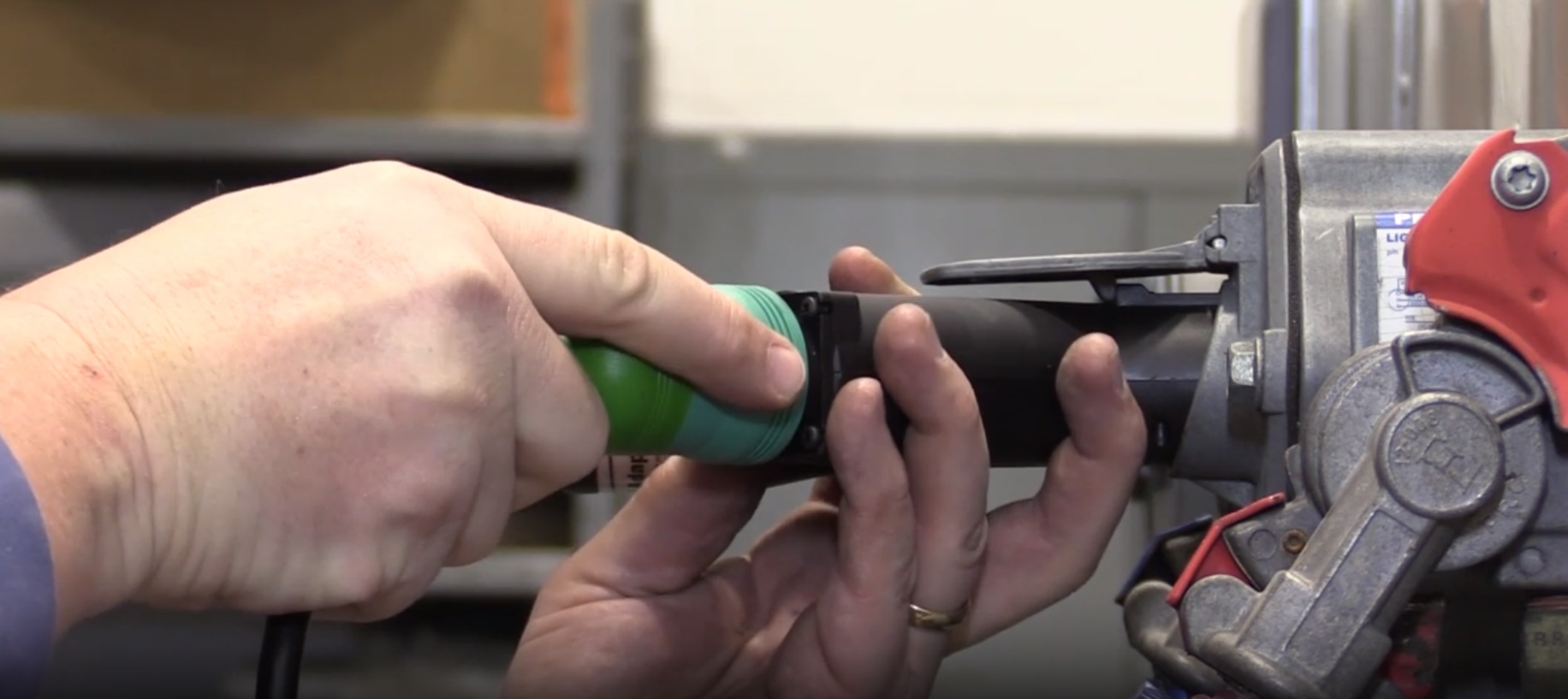
A fleet of Hyundai’s next-generation fuel-cell electric cars has completed a 190-kilometer (118-mile) journey from Seoul to Pyeongchang, the automaker said.
The journey marks the first time that a fuel-cell electric car has achieved Level 4 autonomous driving at such a long distance and at speeds up to 110 kmh (68 mph), according to Hyundai. Five Hyundai vehicles completed the journey. Three vehicles are based on Hyundai’s next-generation fuel-cell electric SUV NEXO, scheduled to be released in Korea next month, and the other two are Genesis G80 autonomous vehicles.
All vehicles are equipped with Level 4 self-driving technology, as defined by the SAE international standards, and 5G network technology, according to the automaker. The vehicles used for the demonstration are “futuristic vehicles” that closely represent Hyundai’s three visions for future mobility: connected mobility, freedom in mobility and clean mobility.
The demonstration started in Seoul on Feb. 2 with the “Cruise” and “Set” buttons being pressed on the autonomous-driving steering wheel of each vehicle, at which point the cars immediately switched to self-driving mode and began the 190-kilometer journey to Pyeongchang. “Entering the highway, the vehicles moved in response to the natural flow of traffic,” said Hyundai. “They executed lane changes and overtaking maneuvers, and navigated toll gates using Hi-pass, South Korea’s wireless expressway payment system.”
The car featured a number of advanced technologies that enabled them to recognize surrounding vehicles more accurately and make better judgments at junctions and at branching roads, navigate through toll gates by accurately calculating the toll gate’s width and position and precisely pinpoint the vehicle’s position on a map by using external sensors fitted for situations when the GPS signal was interrupted, such as going through long underground tunnels, according to Hyundai.
Hyundai said it conducted “a significant number of highway test drives amounting to hundreds of thousands of kilometers traveled, which enabled the automaker to accumulate a vast amount of data that helped enhance the performance of its self-driving vehicles.”
“Hyundai’s philosophy for developing autonomous driving technology is to provide the highest level of safety combined with a high standard of convenience that our customers expect,” said Jinwoo Lee, head of the Intelligent Safety Technology Center at Hyundai Motor Group.
The exterior and interior of self-driving vehicles used for the demonstration look similar to Hyundai’s other mass-produced models, but they are equipped with various cameras and LiDARs.
“Adding a small number of sensors to mass-produced vehicles has enabled the realization of fully autonomous driving technology, and thus brings the company a step closer to the commercialization of self-driving technology,” Hyundai said in a news release.
Autonomous driving processes a high volume of data, which requires a lot of power. The fuel-cell electric model is able to produce electricity through a reaction between hydrogen and oxygen in the fuel-cell stack, “making it the optimal vehicle model choice for this test,” according to the automaker.
The NEXO fuel-cell electric SUV can drive more than 600 kilometers on a single charge, which takes approximately five minutes.
Article courtesy BodyShop Business.


